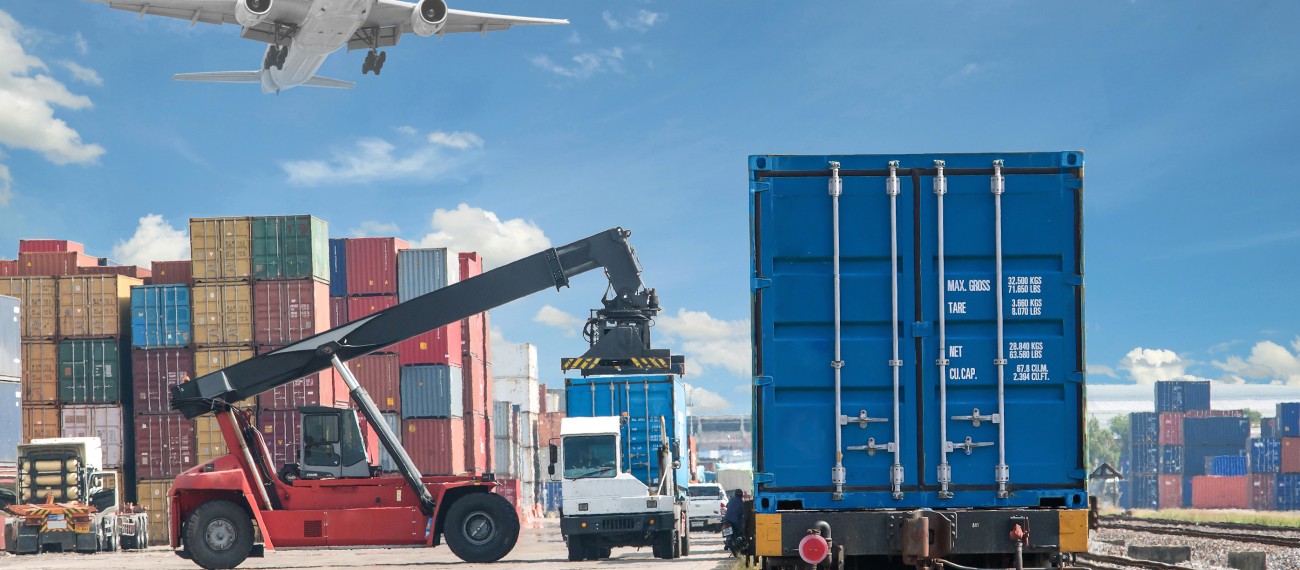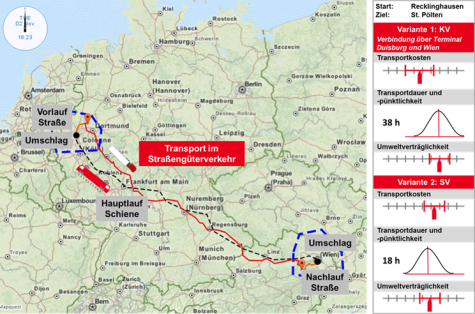Combined road/rail freight transport can be an approach for SME forwarding companies for positioning more successfully in a transport market characterized by low margins and high competitive pressure. However, the large number of interfaces between the modes of transport and the resulting increased complexity of the transport organization represent, in comparison to unimodal road freight transport, essential entry barriers for SME freight forwarders. As one example the train in the main carriage can be missed due to a delayed pre-carriage, which can lead to considerable delays for the final recipient of the transport. The uncertainty resulting from this complexity with regard to decision-relevant criteria in the mode choice such as transport costs, transport duration, punctuality and also environmental compatibility (CO2 emissions) can cause freight forwarders to exclude combined transport as an alternative to unimodal road transport.
In the two-year research project “RelKV”, funded by the German Federal Ministry for Economic Affairs and Energy, SME freight forwarders should be enabled to systematically compare the relevant criteria (transport costs, duration, punctuality, CO2 emissions) for combined transport and road transport for specific transport relations. Thereby the various uncertainties are taken into account, too. By means of a simulation model, it is possible to consider both stochastic input variables (for example expectable pick up time at the shipper) as well as uncertainties during the transport process (for example missed departures or possible delays). The result of the simulation model is not an absolute value for the decision-relevant criteria, but statistical distributions considering the variance of the results.
The project results are therefore differ from simple comparative calculations. The uncertainty related to the mode choice can be elaborated explicitly for SME freight forwarders.
The simulation is made available via an Internet platform, which makes an assessment of CT feasibility for transport relations with source or destination in Germany from an individual company perspective possible. In the project-related committee in addition to SME freight forwarders, shippers, terminal operators, major logistic service providers and transport associations participate as well. The committee regularly provides input to the project and ensures the practice transfer. The range of companies and associations involved represents the large number of different actors in combined transport. This should ensure a broad acceptance of the results in industry.
Key Data:
Duration: January 2017 to December 2018
Funding: Bundesvereinigung Logistik e.V. – BVL, Schlachte 31, 28195 Bremen; funded by Arbeitsgemeinschaft industrieller Forschungvereinigungen e.V. (AiF) (Association of Industrial Research Organisations) through a financial support by the Federal Ministry for Economic Affairs and Energy
Project Management: Jan Philipp Müller




